Why Early Years Music Activities Are So Important
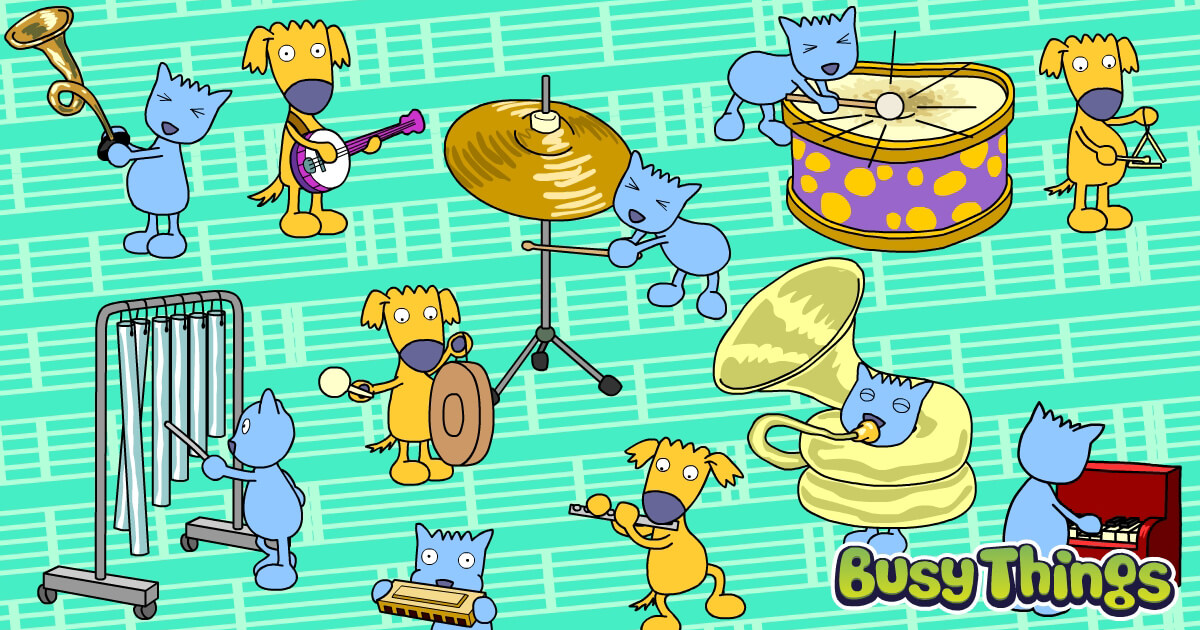
A significant amount of research has been carried out to better understand musical activity and the brain. It is now well understood that music supports the general development and well-being of the very young.
What does the research say?
Research indicates that regular musical activity can help children develop in four key areas. These are:
Below we delve a little deeper into each area, then provide an activity from Busy Things that supports its development.
Language and communication
Children need to develop their listening skills in order to recognise and remember basic letter sounds (phonemes) when they first learn to read and regular musical activity can help support children’s acquisition of language because they learn new words and develop an understanding of their meanings through singing songs. This is particularly true when the material includes rhyming vocabulary but applies when this isn’t a factor too.
Scientists have also proven that music is the only teaching approach that activates the entire brain, so putting the alphabet to music, for example, will help children pick it up more quickly. You can see this in practice all the time. Catchy tunes lock into the children’s memories, so that in no time at all, you’ll see they can sing along without the supporting vocals.
Personal and social development
Music is an inclusive, uplifting activity that children can access, no matter what their age or ability. It builds self-esteem and is a great tool for encouraging self-expression and creativity.
Mathematical skills
Like maths in many ways, music is built on sequences and patterns. Children will develop mathematical thinking as they play, and respond to these sequences and patterns by counting, keeping the beat, moving and playing with different rhythms.
Making sense of the world
As well as providing a new source of words, music can also help children understand new concepts. Action songs, in particular, are great for introducing positional language, such as ‘high’, ‘low’, ‘up’ and ‘down’. Think of the Grand Old Duke of York or Wind the Bobbin Up.
And there’s more…
In addition to the above, there is a good case for including music in children’s play purely for its own sake. Music helps children understand pitch, volume, rhythm, sequencing and the sounds of different instruments. It’s also intrinsically good for well-being too, as it can improve mood, act as a distraction tool, and support concentration.
How can Busy Things support music learning?
Busy Things is an online collection of interactive games, activities and learning tools for 3–11-year-olds, which includes many music activities for the under-fives and beyond. Games that specifically support music skills include:
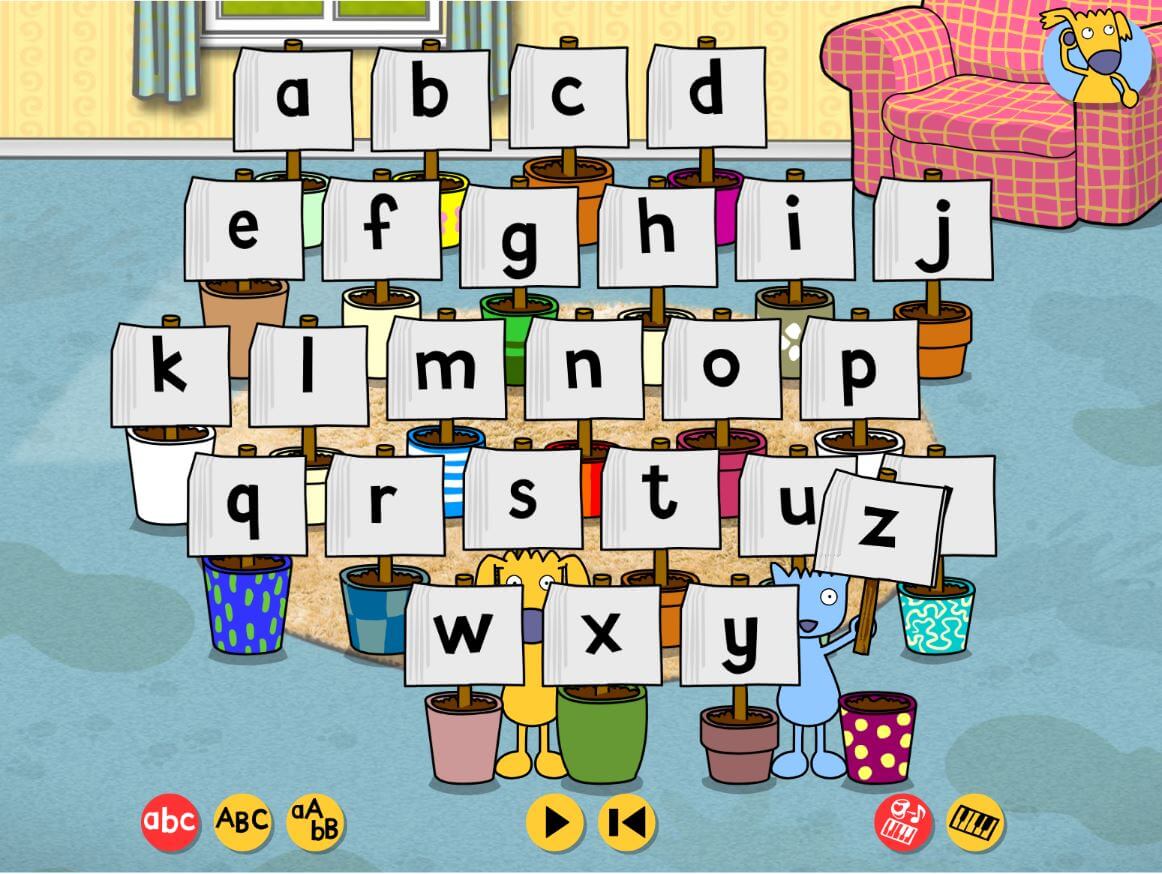
Our Alphabet song makes letter learning fun and memorable and supports language and communication development.
Children can sing along or as their alphabet knowledge grows, sing with just the musical accompaniment.
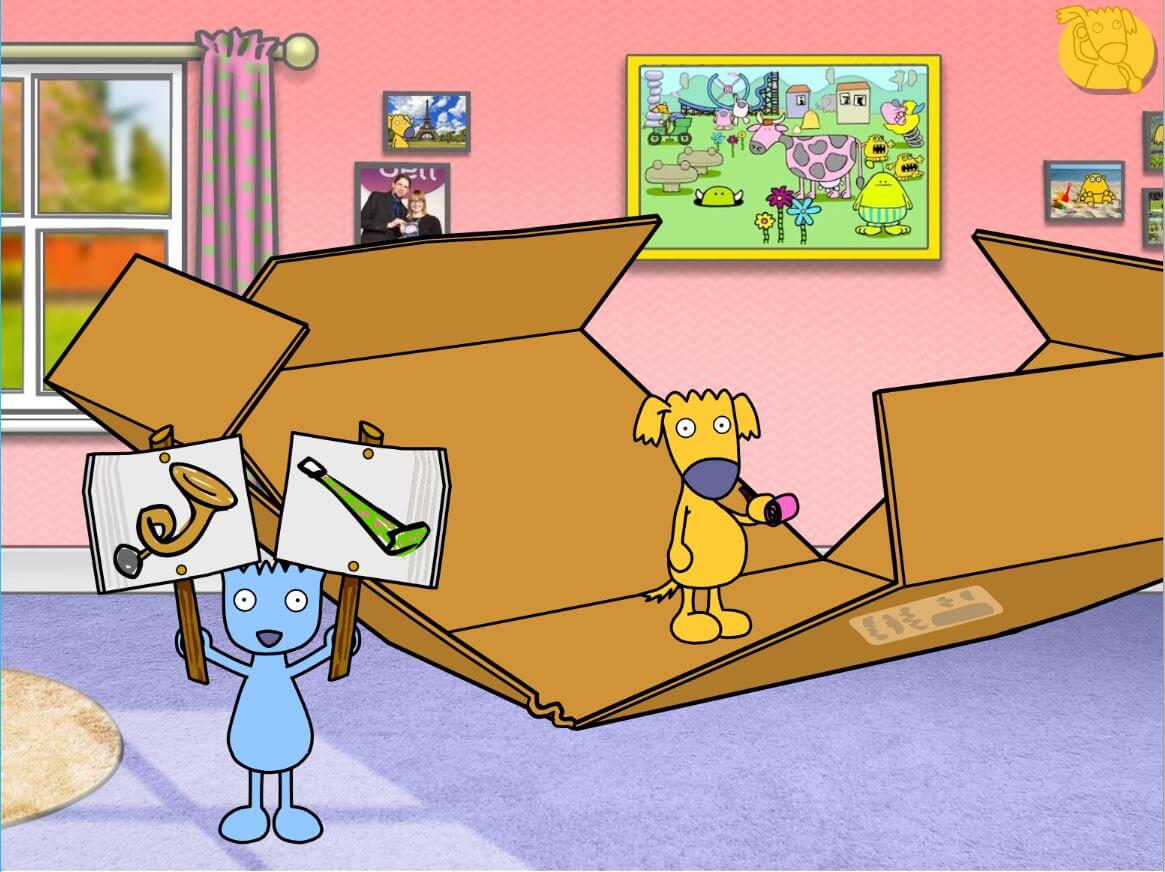
Music mixer allows children to experiment with different instruments to create different-sounding pieces.
It’s great for children’s confidence and social skills, helping them identify some basic musical preferences and get creative with sounds.
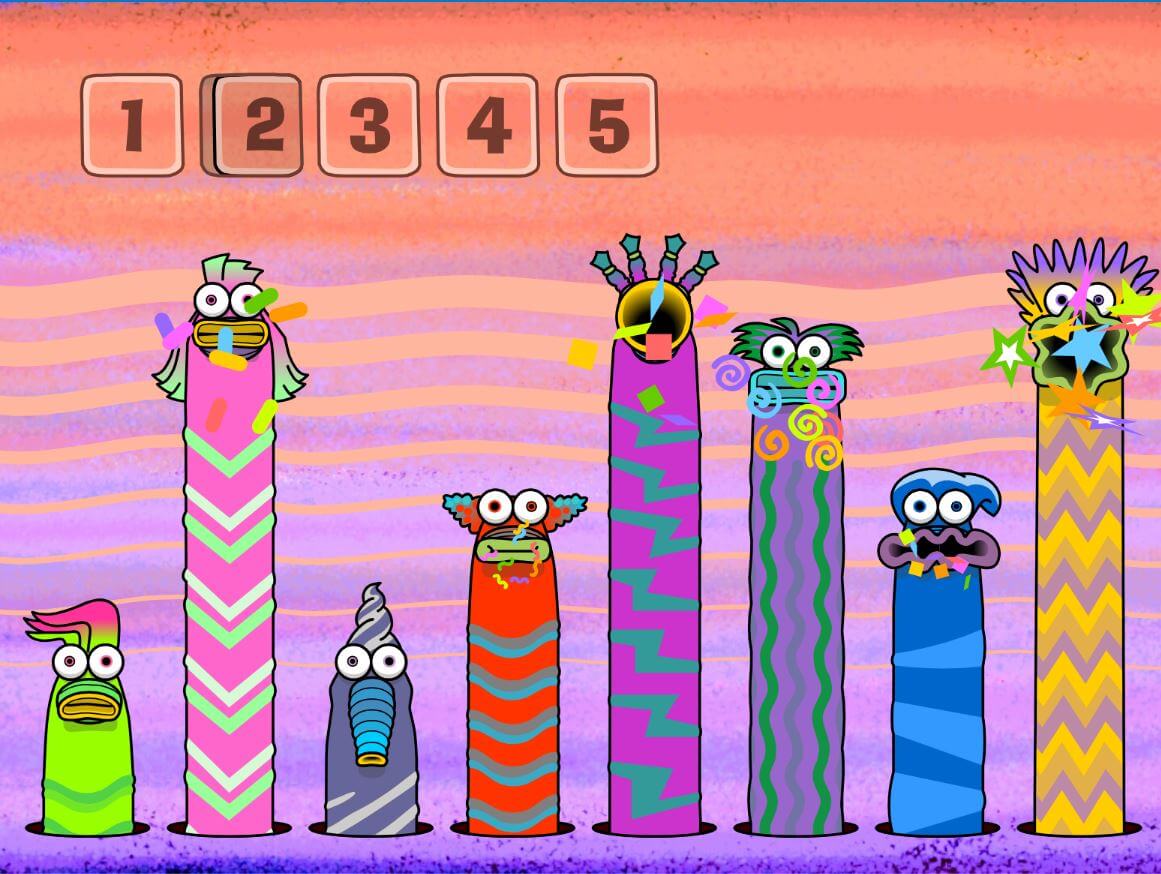
Topple the tower is all about rhythm so supports mathematical development.
Can your pupils copy Cat’s beat?
How many beats can they get the tune to reach?
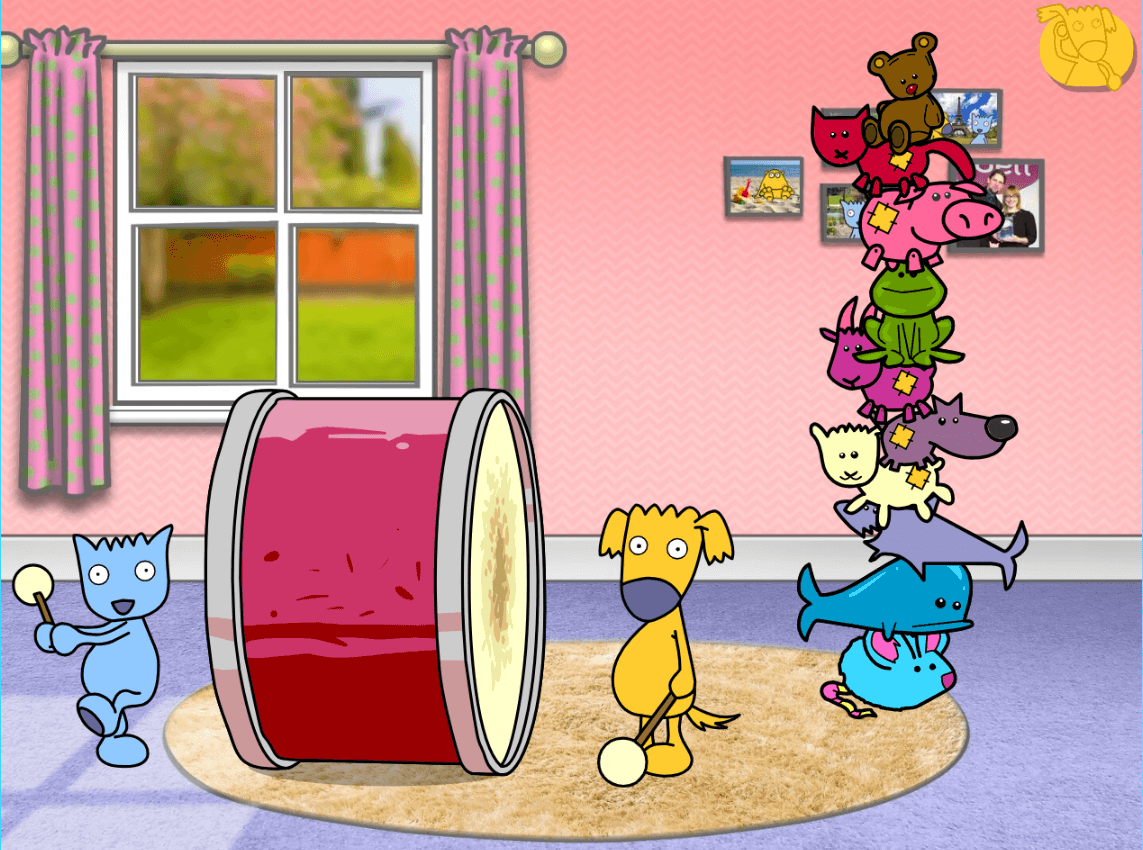
What’s in the box? takes the children’s music exploration to the next level, beyond pitch and rhythm to focus on the instruments.
It’s a listening activity, which teaches children about the different types of instruments and the sounds they produce.

The last activity we’re showcasing is Colliding cogs, which is a fantastic mindful activity.
Simply fire a cog from the cannon and listen as it collides into various objects on the screen. Pupils can touch different objects on-screen to change the sound.
Want to see more?
Young children love Busy Things and music so we’d love you to try it out in your Early Years setting or home. Simply sign up for a 10-day free trial here, if you’re a nursery and see more of our activities and games. If you’d like to join one of our free Zoom tutorials, we’d be happy to show you around. If you’re a home user, sign up here for a 7-day trial.
Any comments?
We hope you find this blog useful. Please do let us know what you think in the comments. Similarly, if you have any ideas for future blogs, we’d love to hear them.
This blog has been revised and updated in February 2024.